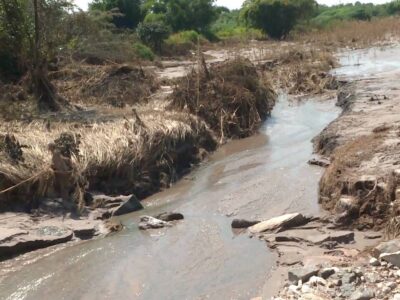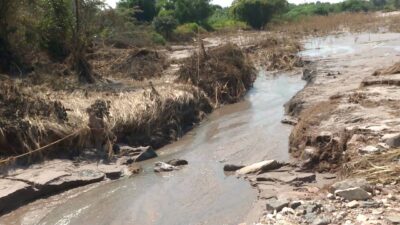The Zambia Agricultural Research Institute (ZARI) has reportedly developed advanced climate-smart agriculture technologies, including improved crop varieties, to boost yields and enhance food security.
ZARI also claims to be refining agronomic practices to increase productivity while mitigating the effects of climate change.
Acting Director, Dr. Ndashe Kapulu, announced this on the sidelines of benchmarking meetings in Pretoria, South Africa, on Wednesday, according to a statement issued in Lusaka by Tamara Nyirenda, First Secretary for Press and Public Relations at the Zambian mission in that country.
Kapulu emphasized that developing climate-resilient technologies such as drought, pest, and disease-tolerant seed varieties was critical to safeguarding Zambia’s agricultural sector from climate change threats.
He revealed that ZARI had successfully developed rain-fed wheat varieties, enabling smallholder farmers to diversify into wheat production.
“The plan is to link smallholder farmers to better markets to improve their incomes. We are doing this to increase productivity as Zambia aims to reach a production target of one million metric tonnes of wheat annually by 2027,” Kapulu said.
Additionally, ZARI is developing well-adapted irrigated wheat varieties to counter the impact of diseases such as wheat rust, which significantly reduces yields.
Kapulu expressed confidence that these initiatives would help Zambia achieve its ambitious agricultural targets, as outlined by President Hakainde Hichilema, who set goals of 10 million metric tonnes of maize, one million metric tonnes of wheat, and increased soybean production by 2027.
“As ZARI, we are deploying various technologies, including high-yielding maize varieties that are tolerant to drought, pests, and diseases,” he added.
He also highlighted ongoing research into soybean production, stating that ZARI had developed several high-yielding varieties, with some already released to smallholder farmers.
“For soybeans, we have varieties suited for smallholder growing conditions, with competitive yields ranging from 3 to 3.5 metric tonnes per hectare. However, achieving full yield potential requires the adoption of good agronomic practices. We are working closely with the Department of Agriculture’s extension services to ensure farmers receive proper guidance,” Kapulu said.
Meanwhile, Acting Director of the Seed Control and Certification Institute, Dr. Nathan Phiri, emphasized the importance of the benchmarking exercise in South Africa, saying it provided valuable insights into improving agricultural productivity in Zambia.
Phiri noted that the knowledge gained would be shared with farmers to ensure they have access to high-quality, climate-resilient seeds.
“Zambia needs improved seed varieties that can withstand adverse climatic conditions to meet its agricultural targets,” Phiri said.
WARNING! All rights reserved. This material, and other digital content on this website, may not be reproduced, published, broadcast, rewritten or redistributed in whole or in part without prior express permission from ZAMBIA MONITOR.












Comments